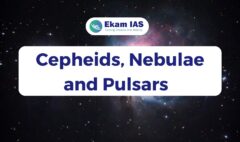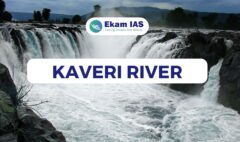Four New Corals Recorded from Indian Waters
January 7, 2023 2023-01-07 18:30Four New Corals Recorded from Indian Waters
- Scientists have recorded four species of azooxanthellate corals for the first time from Indian waters.
- These new corals were found from the waters of Andaman and Nicobar Islands.
- Azooxanthellate corals are a group of corals that do not contain zooxanthellae.
- They derive nourishment not from the sun but from capturing different forms of plankton.
- These groups of corals are deep-sea representatives, with the majority of species reporting from between 200 m to 1000 m.
- Their occurrences are also reported from shallow coastal waters.
- Whereas, Zooxanthellate corals are restricted to shallow waters.
The four new Corals are:-
- Truncatoflabellum crassum (Milne Edwards and Haime, 1848)
- Incrustatum (Cairns, 1989)
- Aculeatum (Milne Edwards and Haime, 1848)
- Irregulare (Semper, 1872)
- All the four groups of corals are from the same family Flabellidae.
- These are non-reef building
- They were previously found from Japan to the Philippines and Australian waters.
- Only T. Crassum was reported within the range of Indo-West Pacific distribution including the Gulf of Aden and the Persian Gulf.
- Azooxanthellate corals are a group of hard corals and the four new records are not only solitary (living alone) but have a highly compressed skeletal structure.
- There are about 570 species of hard corals found in India and almost 90% of them are found in the waters surrounding Andaman and Nicobar Islands.
- The pristine and oldest ecosystem of corals share less than 1% of the earth’s surface but they provide a home to nearly 25% of marine life.
Model Question
Q. With reference to the newly recorded corals by Zoological Survey of India (ZSI), Which of the following statements are correct?
- They are the first recorded species of azooxanthellate corals from Indian waters.
- They are solitary in nature with highly compressed skeletal structure.
- These new corals belong to the same family, Flabellidae.
- These are non-reef building corals.
Select the correct answer using the code given below :
(a) 1 and 2 only
(b) 2, 3 and 4 only
(c) 1 and 4 only
(d) 1, 2, 3 and 4
Answer : D
To UPSC-standard MCQs, join our Telegram Channel.
To get years of subjectwise-segregated newspaper articles, join our subjectwise Telegram Channels.
Join our 140k+ YouTube community to watch free classes on various UPSC related topics.
Follow us on Instagram for UPSC updates.
Click here to read more UPSC Current Affairs.
Ekam IAS is the oldest online IAS institute in Kerala. We’ve years of experience in mentoring and teaching students all over the nation, helping them achieve their UPSC-dream through the right guidance, strategy, and precise content. Join Ekam IAS and turn your UPSC-dream into reality.
To learn customizable preparation strategies, book an appointment with our UPSC-expert. Book Now.







